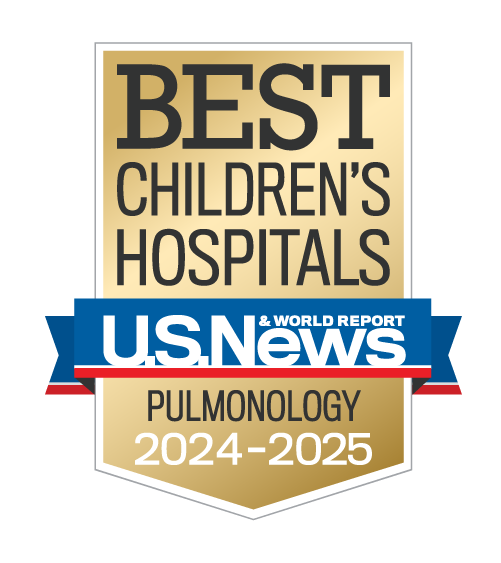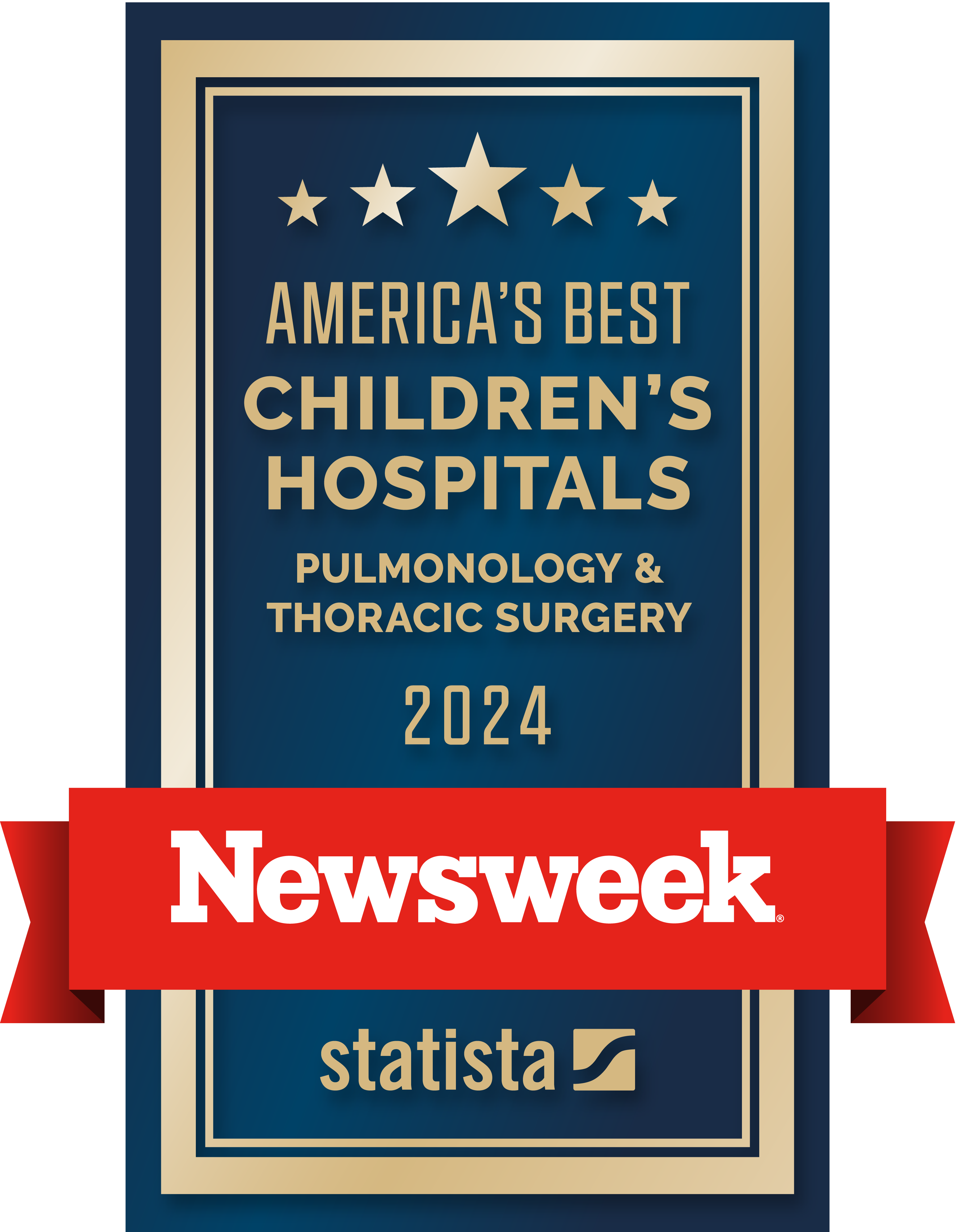Multispecialty care for children with lung disease
The Center for Healthy Infant Lung Development (CHILD) at Boston Children's Hospital provides comprehensive treatment to newborns, infants, and children with various forms of lung disease. We are one of the largest centers in the world that cares for premature infants and full-term infants with breathing difficulties such as bronchopulmonary dysplasia, apnea, and wheezing in the first years of life.
CHILD offers a multidisciplinary approach to maximize the growth and development of the lungs. It’s our goal to help your child reach their full potential in all aspects of their normal activities, including exercise, feeding, and learning.
How we approach lung disease
At CHILD, we provide comprehensive evaluation and follow-up care to infants, children, and young adults with lung and breathing abnormalities due to premature birth, such as bronchopulmonary dysplasia (BPD). Our multidisciplinary team regularly rounds with teams in the Neonatal Intensive Care Unit (NICU) and Medical Intensive Care Unit (MICU), so you can be sure your child is receiving multispecialty care tailored to their individual needs and conditions.
A seamless transition from hospital to home
If your newborn has BPD and is admitted to our NICU, they’ll receive comprehensive, multispecialty care from the clinical team in our BPD program. When they’re ready to discharge, they’ll transfer to CHILD, where their team will help ensure a smooth transition from hospital to home. Once they’re home, we’ll focus on optimizing respiratory health and lung development during their first few years of life.
If your infant was discharged on oxygen or on respiratory medications (such as diuretics), we’ll help you manage their needs and wean safely over time. This includes remote oxygen monitoring for babies who require oxygen at home. We also follow many babies who weren’t necessarily discharged on oxygen or respiratory medications, but remain at risk of having breathing issues during their first few years of life.
Our multidisciplinary clinic aims to serve as a “medical home” for your baby who was born premature. In partnership with you, we’ll take a whole-child approach to treatment that includes:
- Focusing on your child’s nutrition, respiratory development, growth, and developmental health
- Working closely with your child’s primary care doctor and the remainder of your care team to maximize your child’s respiratory health
- Providing guidance on appropriate preventative care (including RSV prevention) so you can help protect your baby’s lungs
As your child grows older, we’ll monitor for complications of bronchopulmonary dysplasia such as asthma, and we’ll help them safely transition to daycare and school. We also provide long-term follow-up care to monitor your child’s lung growth and health, including pulmonary function testing.
Additionally, if your infant has failed car seat testing, we can support your transition from car bed to car seat. And we can help determine when it’s safe for your infant with lung disease to travel. Read more about our programs and services.
Our staff
CHILD is staffed by an experienced team of Boston Children's clinicians, all of whom have specialized training in the care of infants and toddlers with lung disease. Our multidisciplinary staff includes experts from:
- Pulmonary medicine
- Pulmonary nursing
- Neonatology
- Nutrition
- Social work
- Physical and occupational therapy
- Respiratory therapy
When appropriate, we also work closely with pediatric specialists in NICU Growth and Developmental Support Programs (GraDS), the Department of Cardiology, the Pulmonary Hypertension Program, the Department of Otolaryngology & Communication Enhancement, the Division of Gastroenterology, Hepatology, & Nutrition, and the Feeding & Swallowing Program at Boston Children's to ensure that every child receives the most comprehensive and coordinated care.
Our services
Car Seat Challenge
Nearly 27 percent of all premature infants born each year are at risk for breathing problems in their car seats. Parents cannot rely on the premature infant's color or physical appearance to detect problems with breathing.
These breathing problems can be detected by screening infants before they are discharged from the hospital, as recommended by the American Academy of Pediatrics. This screening is called a car seat challenge. Infants who are found to have breathing problems through a car seat challenge make their first trip home in a "car bed."
Until now, there has been no system for continued evaluation of infants sent home in car beds. Furthermore, it is not known when it is safe to transition infants from their car bed to their car seat.
The Center for Healthy Infant Lung Development is currently evaluating infants who failed their initial car seat screen and were sent home in a car bed. This follow-up screen will help determine when it is safe for your infant to travel in a traditional car seat.
We recommend infants begin repeating screening one month after being discharged from the hospital, or sooner if the infant is outgrowing the car bed.
Scheduling a car seat rechallenge
You can schedule a car seat challenge follow-up at Boston Children's as soon as you get home from the hospital by calling 617-355-1900.
You should bring your infant's car seat with you to the appointment. Plan to spend three hours at the appointment. Bring extra infant care supplies. This visit includes an initial intake with a nurse or nurse practitioner, car seat testing of your infant in the car seat and a follow-up discussion with a doctor.
High Altitude Simulation Testing
Some preterm babies, particularly those with bronchopulmonary dysplasia or those who were discharged on oxygen, may need oxygen to safely fly on an airplane. The amount of oxygen in the air in a pressurized airplane cabin is lower than that at sea level.
We offer altitude testing for infants and children who are at risk of developing low oxygen levels during airplane travel. You should talk to your child’s doctor to determine if this testing is necessary. You can schedule an altitude test with our pulmonary function lab by calling 617-355-1900.
Our areas of innovation
Clinical Research
- Establishing a multidisciplinary team caring for infants with BPD
- Recorded home oximetry to manage home oxygen in children with BPD
- Preterm Lung Registry, which tracks long-term outcomes for children with BPD, led by Dr. Lystra Hayden
- High altitude simulation testing for infants with BPD
- Aero-BPD, a study looking at the impact of indoor air quality on outcomes in school-aged children with BPD, led by Dr. Jonathan Gaffin
Identifying household triggers for chronic lung disease in children
Few researchers have closely examined the factors behind long-term respiratory illness in children with a history of BPD — but now an ongoing study of 240 households by Boston Children’s Division of Pulmonary Medicine, led by Dr. Jonathan Gaffin, MD, MMs, aims to determine exactly how indoor air quality and environmental factors contribute to a decline in lung function.
National collaboration with the Bronchopulmonary Dysplasia Collaborative
Boston Children’s Hospital is a member institution of the BPD collaborative, a international consortium institutions with expertise in caring for infants with the most severe forms of BPD. The group’s mission is to improve knowledge of how best to care for these children and improve their long-term outcomes.
The team at Boston Children’s Hospital is actively involved in this collaborative; selected projects include:
- Predicting which babies may require tracheostomy
- Determining optimal ventilation strategies for severe BPD
- Developing strategies on how to provide optimal nutrition to babies with BPD
- Understanding racial and ethnic disparities in BPD care and outcomes
- Optimizing long-term respiratory and growth outcomes for children with BPD


